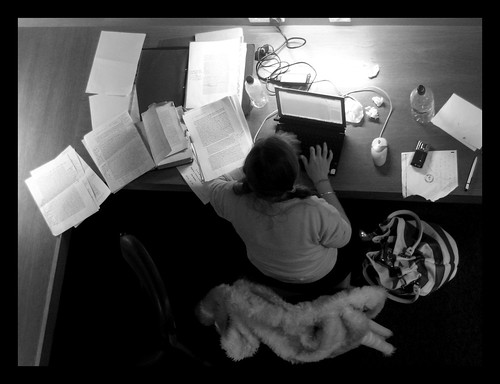
Libraries, in many ways, are places designed to help you experience other lives and other perspectives. Rather than provide answers, libraries provide multiple perspectives on many topics with the belief that information helps people make up their own minds.
As part of our commitment to making the diversity of experiences visible, we have a bookshelf where we place new books about diversity. We also have created guides to information on topics in the news and on our minds.

image courtesy of tripu
Use the Books tab on the library's main page to search for books by topic, author, or title.
Once you have a few promising call numbers written down, browse the shelves to find more.
Use the Articles tab on the library's main page to search for articles. The first link - also linked below - is a good all-purpose place to start.
When searching, you can limit results a number of ways.
A Google search on a topic can result in a deluge of mixed information - Wikipedia articles, commercial sites, Twitter accounts, newspaper articles, and advocacy organizations. Some of these may be useful primary sources - Unicorn Riot is reporting live from the NoDAPL protests in North Dakota. But they can be hard to sort out and need a critical eye. For example, if you were to use a film clip from Unicorn Riot, you would need to find out who they are, what their purpose is, and what other perspectives may be held about the issues they are covering.
Some useful Google hacks:
Limit a search by date - click on search tools - any time
Limit a search to government sources - add site:.gov after your search terms
These sites may be particularly useful for research.
As you work, make sure you have enough information to cite sources you ultimately decide to use. There are options in both the catalog and in the Academic Search Premier database to create a citation to copy - but they are often slightly wrong, so be prepared to edit them.
This work is licensed under CC BY-NC-SA 4.0